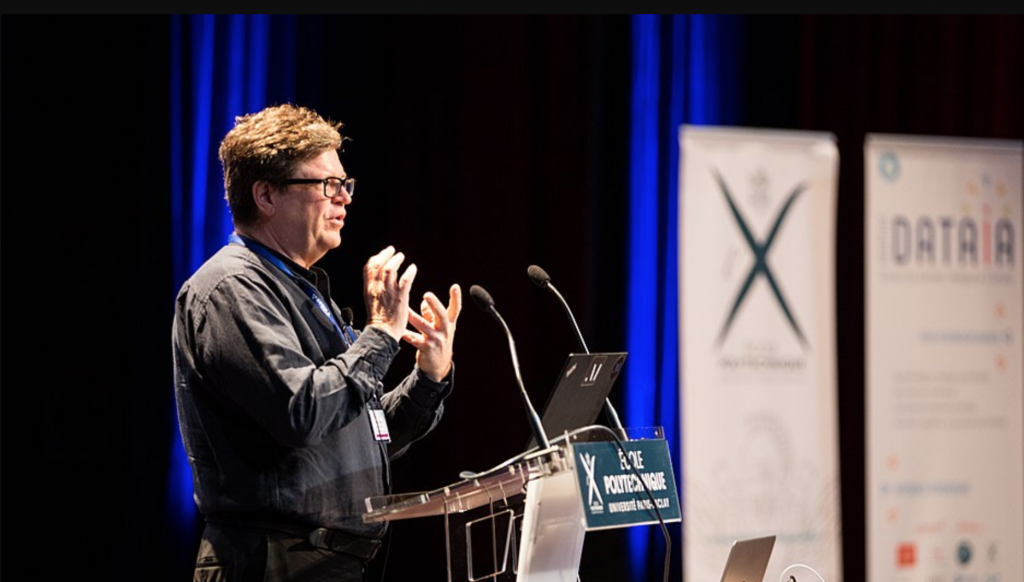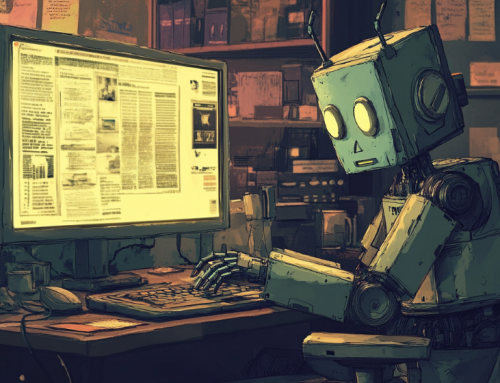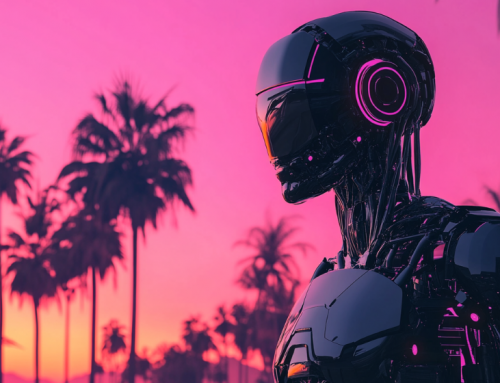
Yann LeCun, director of Facebook AI Research, speaks at the École Polytechnique Conference of French Computer Scientists in June of 2018. (Source: Wikimedia Commons/Jérémy Barande of Ecole polytechnique Université Paris-Saclay)
Wired Interview with Yan LeCun Rejects Dystopian Ideas about Future of AI
Yann LeCun, a pioneer of modern AI and Meta’s chief AI scientist known for his staunch defense of the technology and his skepticism towards dystopian scenarios, recently told wired.com in a long-form interview that his perspective on AI is not to “do stupid things.” He dismisses the fears of supercharged misinformation and human extinction that some of his peers express. LeCun believes that AI brings numerous benefits to the world and warns against exploiting fear to scare people away from the technology.
LeCun, along with Geoffrey Hinton and Yoshua Bengio, contributed to the development of deep learning, a critical approach in advancing AI. He played a significant role in establishing Facebook AI Research (FAIR) and has been actively involved in promoting open-source AI. LeCun emphasizes the importance of democratizing AI and preventing its control by a few corporate entities.
In a conversation with Steven Levy, LeCun discusses the limitations of machine learning and cautions against the misconception that scaling up current techniques will lead to human-level AI. He believes a significant gap exists in our understanding of how to make machines learn efficiently like humans and animals.
LeCun acknowledges the benefits of AI in mitigating dangers such as hate speech and misinformation. He highlights the progress in using AI systems to remove hate speech from platforms like Facebook preemptively. However, he also acknowledges that chatbots, while impressive, can produce false and sometimes boring content.
Regarding open-source AI, LeCun explains that an open platform allows for faster progress and more secure systems. He argues that a future where AI mediates all interactions with the digital world requires a common infrastructure and should not be controlled solely by a few companies.
LeCun shares his views on OpenAI, expressing disagreement with their approach and their belief in the imminent development of artificial general intelligence (AGI). He discusses the importance of stability and openness in research and suggests that OpenAI’s shift away from these values has diminished their contributions to the research community.
Regarding the regulation of AI, LeCun emphasizes the need for existing regulations to ensure safety in specific applications. He believes that regulating the research and development of AI is unnecessary. LeCun also addresses concerns about the misuse of open-source AI systems, explaining that factors like access to resources and talent make it unlikely for malicious actors to utilize them for destructive purposes.
LeCun concludes the interview by discussing the future potential of AI, including its impact on creativity and the coexistence of AI and human intelligence. He believes that AI will enhance human capabilities rather than replace humans entirely, and he emphasizes the importance of incorporating objectives and guardrails into AI systems to ensure safety.
Overall, LeCun’s perspective highlights the positive potential of AI while cautioning against overhyped expectations and unnecessary fear. He advocates for open-source AI, collaboration, and responsible development to maximize the benefits of this transformative technology.
read more at wired.com







Leave A Comment